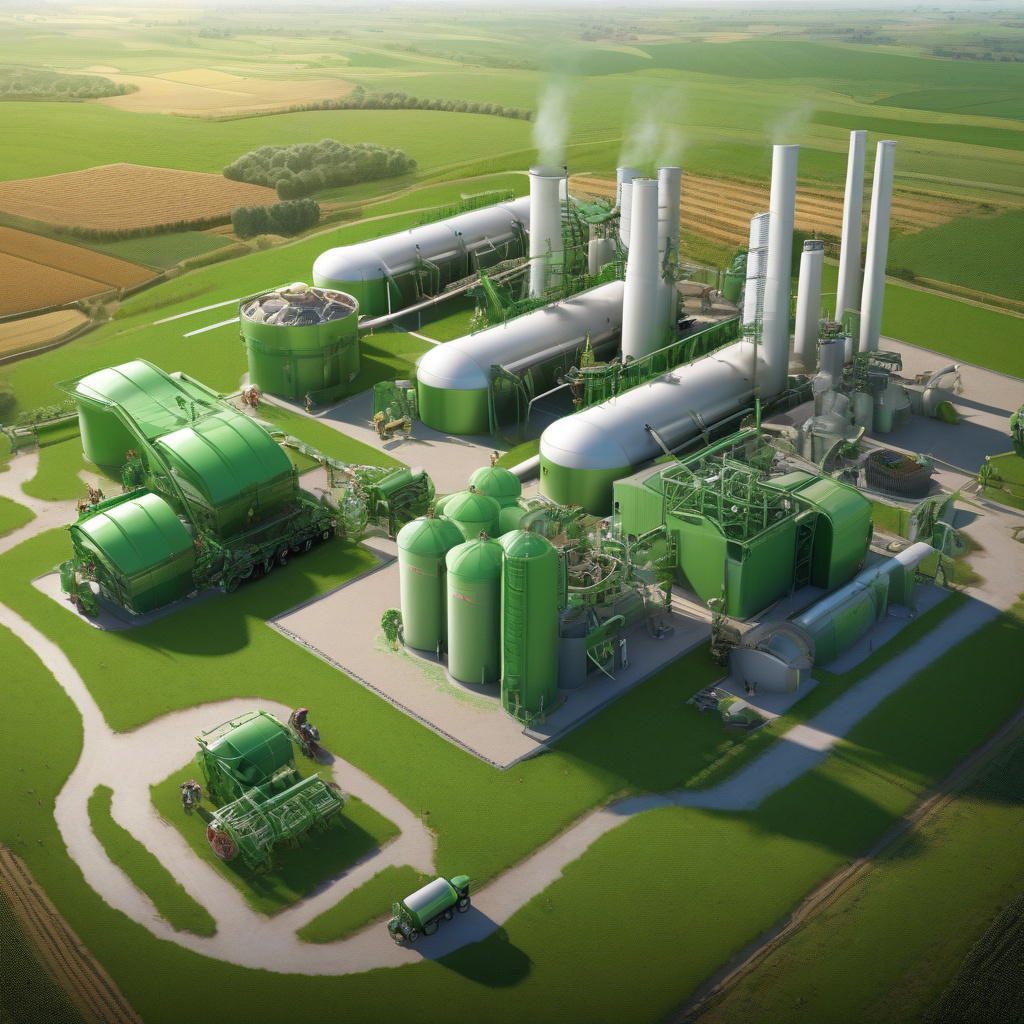China’s Longi to Turn Farm Waste into 400,000 Tons of Green Methanol a Year
Chinese electrolyzer manufacturer LONGi Green Energy has begun construction on a $325 million green methanol plant in Inner Mongolia. This ambitious project aims to convert farm waste into 400,000 tons of green methanol annually. The move signifies a significant step towards sustainable energy production and reducing carbon emissions in China.
Methanol, a versatile fuel, is commonly used in industries such as transportation, construction, and energy production. However, traditional methanol production methods heavily rely on fossil fuels, leading to high carbon emissions. By utilizing farm waste as a feedstock, Longi’s green methanol plant will not only reduce the reliance on fossil fuels but also tackle the issue of agricultural waste management.
The process of converting farm waste into green methanol involves several steps. First, the biomass, including crop residues and manure, is collected from local farms. Then, through a process called gasification, the biomass is heated at high temperatures in a low-oxygen environment to produce syngas, a mixture of hydrogen and carbon monoxide. Next, the syngas undergoes catalytic conversion to produce methanol. This green methanol can then be used as a clean fuel or as a raw material in various industrial processes.
Longi’s initiative aligns with China’s commitment to achieving carbon neutrality by 2060. The country, which is the world’s largest carbon emitter, has been actively investing in renewable energy projects to curb its carbon footprint. By focusing on green methanol production, Longi is not only contributing to China’s environmental goals but also setting a precedent for sustainable fuel production globally.
Moreover, the green methanol produced by Longi’s plant offers a host of environmental benefits. Unlike traditional methanol production, which releases substantial amounts of greenhouse gases, the conversion of farm waste into methanol is a carbon-neutral process. This means that the overall carbon emissions from producing and using green methanol are significantly lower compared to conventional methods, making it a more environmentally friendly alternative.
Furthermore, Longi’s green methanol plant is expected to have a positive impact on the local economy. By sourcing biomass from nearby farms, the project creates a new revenue stream for farmers while promoting sustainable agricultural practices. Additionally, the plant will generate job opportunities in the region, boosting economic growth and supporting local communities.
As the global push for sustainability intensifies, innovative projects like Longi’s green methanol plant are crucial for driving the transition towards a greener future. By harnessing farm waste to produce clean fuel, Longi is showcasing how technology and renewable resources can be leveraged to address environmental challenges effectively.
In conclusion, Longi’s endeavor to turn farm waste into 400,000 tons of green methanol a year marks a significant milestone in the realm of sustainable energy production. Through this initiative, Longi not only contributes to China’s carbon neutrality goals but also demonstrates the potential for green methanol as a clean fuel alternative. As the world seeks greener energy solutions, Longi sets a commendable example of innovation and environmental stewardship.
green energy, sustainable fuel, carbon neutrality, renewable resources, environmental innovation












